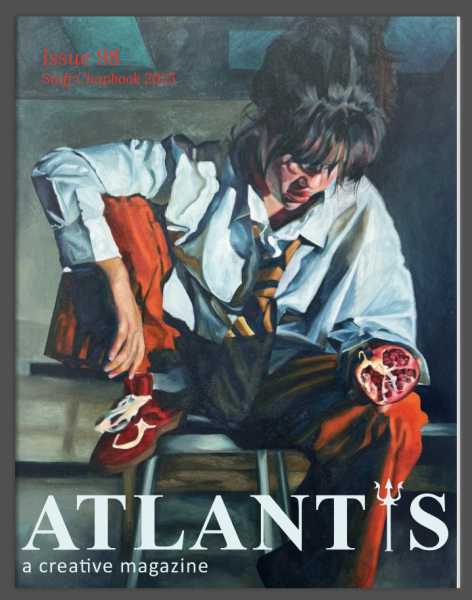Having the right to work
In 2011, the U.S. had 12.2 million refugees, more than the population of North Carolina alone. They are forcibly displaced from their homes in corrupted countries all over the globe, sometimes leaving behind their families and loved ones in search of something very simple-safety. 27-year-old refugee Stevens Muriel of Colombia spent nearly four years trying to find his safe haven.
Now he’s in Wilmington, and here to stay.
As part of UNCW’s 20th annual Intercultural Week (iWeek), Muriel spoke on campus Feb. 13, sharing his story alongside another refugee, who was unable to be publicly recognized for fear of danger to her family back home. Introducing the refugees was Carol Milam, chair of the advisory committee for the Wilmington Interfaith Refugee Ministry. Both refugees find help and support through IRM and Milam.
“Stevens is just a delight to work with. He doesn’t expect a lot to be given to him. He just wants to be safe,” Milam said.
In Colombia, Muriel was in more danger than most American-born citizens can even fathom. He feared the often fatal attacks of the Revolutionary Armed Forces of Colombia, a guerrilla organization known for drug trafficking and kidnappings, deemed a terrorist group by the U.S. FARC has fought for nearly a half-century to overthrow the Colombian government, creating a deadly war between the FARC and the Colombian military.
“It’s so dangerous when the defense come to kill guerillas,” Muriel said. “Innocent people die. When they are in the same place, it’s not good. Guerillas cut up the people to show they are bad. [The guerillas] think that innocent people are with the defense… I had a gun put to me once. When they kill my aunt, I had to move, or they will do the same to me.”
He traveled to slightly less dangerous Costa Rica, but as a Colombian, he could not obtain a visa. So Muriel tried going to the country’s next door neighbor, Panama.
“In Panama, the police caught me and said they would send me back to Colombia. I thought, I can’t go back to Colombia, they will kill me,” Muriel said. “I said to the police, I have some money, can you help me please.”
Unaware of the human rights laws at the time, Muriel offered the immigration police the little money he had to let him go to the Costa Rican border. Even though the Panamanian government is required to do this initially and without monetary incentive, the immigration director took the $200 anyway, leaving Muriel with $50 to live on. At 22 years old, he struggled in Costa Rica, able to stay but unable to work legally.
“I had to pass bad moments and bad times. Sometimes I didn’t have food, and sometimes I didn’t have a place to stay. I believe in God. That helped I think,” Muriel said.
In Costa Rica, Muriel learned about the United Nations High Commissioner for Refugees (UNHCR), where he could apply to become a legal refugee in a country of his choice. As an applicant, people can appeal three times if they are not originally accepted. For Muriel, the third time was the charm. He arrived in Wilmington, through Interfaith, on May 6, 2010.
Before introducing Muriel at the iWeek event, Milam shared her experiences and the work done with refugees by the IRM. She helps teach English to the refugees during the week, but believes she learns more from her students than they do from her.
“It takes courage to be a refugee. When I think about what these individuals have been through, I haven’t lived nearly the lives they have, but they still have joy,” Milam said. “They really are wise people.”
Local chapter members of the United Nations Association, including foreign language professor Amanda Boomershine, the chapter’s vice president, also attended the event.
“One of our favorite agencies to partner with is Interfaith Refugee Ministry because this allows attendees to hear directly from refugees living in the Wilmington area. I think this specific event brought a lot of awareness and education to those who attended the iWeek event, as well as a desire to help out the refugees living in the area,” Boomershine said.
IRM hopes to gain more volunteers to help house refugees and bring people in need into the area. And, in retrospect, these refugees really aren’t asking for much.
“I find when working with refugees that they have no sense of entitlement, so they are very appreciative to anything anyone does for them. They just want to be employed and support their families,” Milam said. “They don’t consume the way we consume. If they want a computer, it’s usually to be able to Skype for their families.”
Muriel left his mother and grandparents in Colombia, but he is able to speak to them via cell phone. He hopes to visit them in their town of Medellin when he gains his citizenship. Hopefully, that will be very soon. He has dreams of joining the United States military, and is currently studying for the ASVAB with a tutor from Cape Fear Literary Council. After one year with the military, Muriel can be a legal United States citizen.
“I feel that military can give me more benefits, save more money, and help me learn more English,” Muriel said. After rigorous jobs in landscaping and dishwashing, right now he is doing maintenance work at an apartment community in Leland. But Muriel, dedicated and eager to learn, has big dreams of attending a university or producing music, having always loved techno DJing.
“I like to mix music. In Costa Rica, I was a DJ to make money. A lot of Americans there liked my music. I like it when the people go crazy!” Muriel said with a laugh.
And this is America. Muriel can work wherever he wants, legally and freely, without fear of being arrested, unlike when he lived in Costa Rica.
“Americans have this idea of having to work like it’s bad, and we do. But for refugees, freedom is really being allowed to work,” Milam said. Muriel hopes that other people from Colombia will come here to find a happy life like he has.
“I’m happy to be here. It’s hard to some people here, who feel like they can’t always do something. But in my country, I can’t beat dangers there. We have a lot of countries that don’t protect people like here. I’m glad this country has opportunities,” Muriel said.











